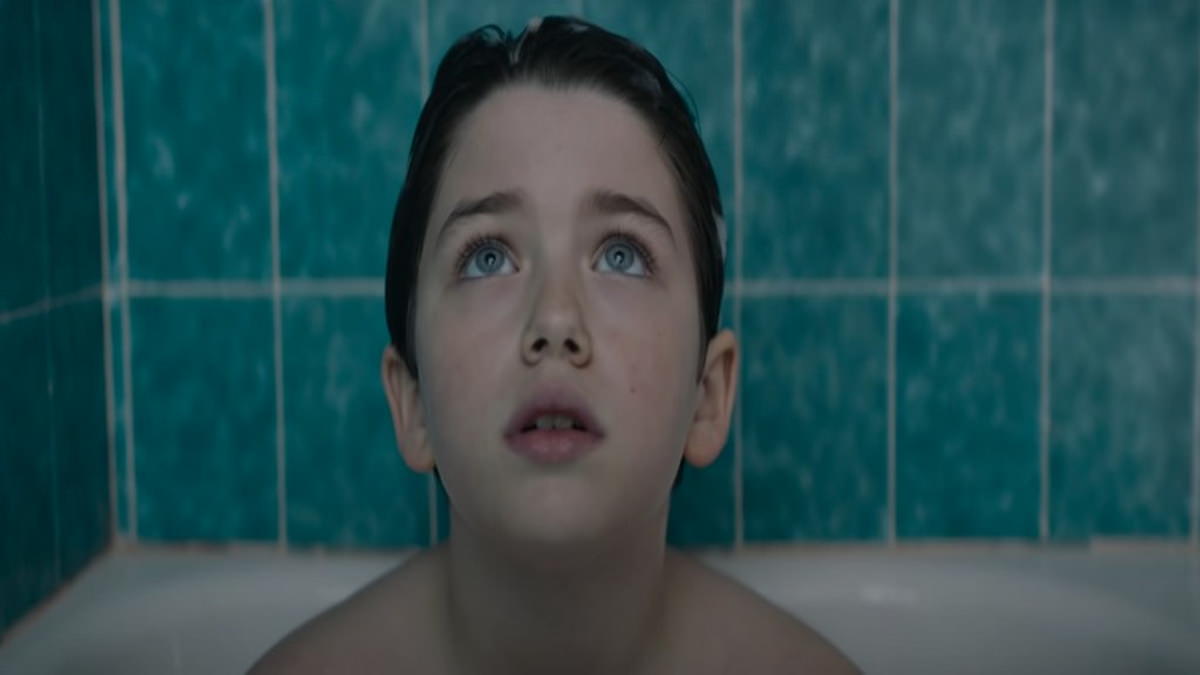GERNIKA (2016) de Koldo Serra

“En el amor y en la guerra la primera víctima es la verdad”
Cuando empecé a ver “Gernika” pensé que no me iba a gustar. El tono en el que estaba rodada, como si fuese una película de aventuras de los años 90, y la abundancia de personajes y tramas no me acababan de convencer. Tenía la sensación de estar viendo el capítulo piloto de una serie, y no tenía muy claro cómo iban a cerrar la historia en tan poco tiempo. Sin embargo, sin apenas darme cuenta, la historia fue creciendo y empezó a engancharme; hasta el punto de llegar al final y pensar “me ha gustado”, ya que lo que para mí al principio parecían defectos, acaban siendo las grandes virtudes de esta película.
Y es que con “Gernika” nos encontramos frente a otra película que habla de la Guerra Civil Española, tema muy recurrente en el cine español, por lo que hacía falta enfocarlo de manera distinta a cómo se ha hecho hasta ahora.
Y en eso el director, Koldo Serra, ha demostrado saber cómo diferenciarse. A parte de tener una buena cantidad de escenas bélicas, el toque “informal” que comentaba al principio, hace que esta película no siga la misma línea que otras de la misma temática.
Si bien es cierto que la película tal vez no llegue a tener la profundidad que podría, esto se suple con el carisma de unos buenos personajes principales, encarnados por unos actores que están espléndidos. El cuarteto protagonista (James D’Arcy, María Valverde, Ingrid García Jonsson y Alex García) tiene mucha chispa; Burn Gornman se convierte en un malo malísimo; y Vasyl, el personaje interpretado por Jack Davenport, despierta en el espectador sentimientos encontrados.
Además, un punto negativo que destacaría es lo previsible de algunas escenas. Menos mal que la película es bastante dinámica y este detalle no afecta hasta el punto de poder hacerla aburrida.
Aún así, la película consigue su propósito inicial, rescatar la historia de Guernica, nombre que a todos nos suena, pero pocos sabrán que es algo más que un cuadro de Picasso. Y es que el arte existe para eso, para contarnos historias, ya sea a través de la pintura, el cine o la música. Y es una lástima pensar la cantidad de gente que pasará por delante del cuadro cada día en Madrid y no conocerá la historia de este pueblo, bombardeado injustamente para satisfacer las ansías de poder y fomentar el odio.
En lo que a mí respecta, tengo muy claro que a partir de ahora cada vez que escuche hablar de Guernica me acordaré de este pueblo abandona por la justicia, al que todavía no se le ha pedido perdón por el daño sufrido; y será por esta película, que me ha hecho conocer un poquito más la historia, a veces cruel, de España.
“In love and war the first casualty is truth”
When I started to watch “Gernika”, I thought I wouldn’t like. It looked like a 90’s adventure movie to me, and there were too many characters and storylines so I didn’t believe all of them would have an appropiate end in so little time. Nevertheless, without having realized, the story started to grow up and I was hooked; and at the end of the movie I thought “I liked it”, because those things that seemed defects to me at first, ended up being the greatest virtues of the movie.
And that’s because “Gernika” it’s another movie talking about Spanish Civil War, a recurring topic in spanish movies, so it needed to be focus in a different way.
And the filmmaker, Koldo Serra, has proved that he knows how to make the difference. Besides of having a great amount of war scenes, this “casual” style that I was talking about at the beginning, makes this movie different from the other ones that speak about this topic too.
It’s a fact that maybe this movie could have delved more in the story, but this deficiency is supplied by the charisma of some good main characters, played by some brilliant actors. The main quartet (James D’Arcy, María Valverde, Ingrid García Jonsson and Alex García) is scintillating; Burn Gornman becomes a very bad bad guy; and Vasyl, the character played by Jack Davenport, makes you have mixed feelings.
Furthermore, a negative aspect that I would emphasised is that some scenes are too foreseeable. But, at least, the movie is quite dynamic so this detail doesn’t make the movie boring.
Even so, the film gets its purpose: remember the story of Guernica, name that we all have heard, but only a few know that is something more than a Picasso’s painting. And that’s what art is about, telling stories no matter how, it can be through paintings, cinema or music. And it’s a pitty to think that a lot of people is walking next to the painting every day in Madrid, and they won’t know the story about this village, unfairly bombed to satisfy someone’s power thirst and encourage hate.
Speaking about me, I’m sure that, from now on, every time I hear to speak about Guernica I will remember this village abandoned by justice, still waiting for an a apologize for the damage; and it will be because of this movie, that made me know a bit more about the history, sometimes cruel, of Spain.





